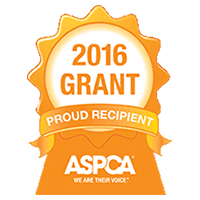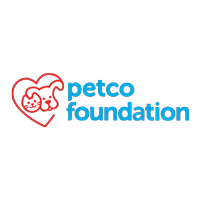Leave a lasting legacy by including PAWS in your will or living trust. This allows you to make a profound and lasting impact on our future sustainability. It also ensures that your generosity continues to help us provide shelter and care for abandoned, surrendered, neglected and lost animals even after you are gone.
Additionally, this type of giving may help you achieve specific financial goals, such as reducing or eliminating certain tax liability. When naming PAWS in your will, you may leave a specific dollar amount, a set percentage of your estate, or a particular property. You can also name the shelter as the beneficiary of your retirement plan, life insurance policy, bank account, mutual fund, charitable remainder trust, or charitable lead trust. Each of these options may help you reduce your estate taxes.
When considering a planned gift, we encourage you to consult with your financial or legal advisor as you consider your options. PAWS’ Federal Tax ID is 61-1224933.
Please let us know if you have included PAWS in your estate planning so we can thank and recognize you. You can email us at info@pawspets.org or call 859-988-9800.
Types of Charitable Planned Gifts
Making a bequest
Perhaps the most straightforward planned-giving option is to make a bequest in your will. Regardless of your age or financial status, a will is essential to ensure that your property is distributed according to your wishes instead of the arbitrary laws of the state in which you live.
Bequests made through your will may take various forms:
- Specific Bequest: Directs a specific dollar gift or property to pass to P.A.W.S.
- Percentage Bequest: Designates a percentage of the total value of the estate as a gift to P.A.W.S.
- Residual Bequest: Directs that P.A.W.S. receive the remainder of the estate, or a portion of the remainder, after all expenses and other bequests have been made.
A bequest to P.A.W.S. is not subject to federal or estate taxes, and there’s no limit on the amount of the deduction. Most importantly, your bequest will help ensure the organization’s ability to provide care and protection for animals in future years.
Naming P.A.W.S. as a beneficiary
If you have a life insurance policy that is no longer needed to provide for dependents, consider making P.A.W.S. the beneficiary. This may enable you to make a significant gift to the shelter without using any of your estate’s capital. A further option is to make P.A.W.S. both the beneficiary and owner of a paid-up policy. Doing so will earn you an immediate tax deduction equal to the policy’s cash value. Contact the policy’s issuing agent for instructions.
You can also make P.A.W.S. the beneficiary of a certificate of deposit (CD). You can buy a CD at your local bank and name P.A.W.S. as the beneficiary, payable-on-death. The CD can remain on deposit earning interest until the holder’s death, then P.A.W.S. would receive its value. Make sure the CD you buy automatically rolls over and maintains the beneficiary designation.
Giving gifts of property
Gifts of appreciated property can be given to P.A.W.S. through a donor’s will or living trust. The donor would receive an estate tax charitable deduction for the full value of the property; however, a qualified appraisal (obtained no earlier than 60 days before making the gift) is necessary to substantiate the income tax deduction.
If you have any questions about your estate planning and P.A.W.S., please feel free to call the shelter and we’ll be pleased to offer our assistance.
Gift Annuity
One deferred gift instrument is the charitable gift annuity. This is popular with many donors because it represents a lifetime contract between the donor and a charity, and because it is relatively simple to understand and establish. Simply, it’s an irrevocable transfer of cash or appreciated property to WHS and in return the donor receives a guaranteed lifetime annuity of a fixed amount each year.
Charitable Trusts
A person might establish a charitable trust that could provide income to the donor (or someone else) for a period of time (often for life). After this gift-deferral period, the trust would mature and the remaining assets would go to one or more charitable beneficiaries.
Did You Know…
- that bequests can take many forms? One may bequeath a specific amount of money or property; a specified percentage of the estate; or all or part of the residue of the estate – the assets remaining after debts and specific bequests have been satisfied.
- that donors receive a lifetime of income from both gift annuities and charitable trusts? Both provide income to the donor for his or her lifetime, then the remaining amount in the fund is transferred to WHS.
- that our nation’s tax laws offer special incentives for gifts of non-cash property, such as securities or property? This is especially true if the property has increased in value since acquisition.
- that you pay no capital gains tax on the appreciation of securities that are donated to WHS? You also receive an income tax deduction for the full market value of the gift.
- that you can give property outright or retain rights to ownership for a set period? This may be attractive to a donor considering leaving property to WHS through a will, but would like to transfer the gift now to receive the income tax advantages and increase cash flow.
- that there are two ways to donate life insurance? The first one is to make the Washington Humane Society the owner of the policy. This allows you an immediate charitable tax deduction. The second option is making WHS the beneficiary of the policy. When you name WHS as the beneficiary of your policy, it does not entitle you to any immediate tax savings, but you will qualify later for an estate tax charitable deduction.






